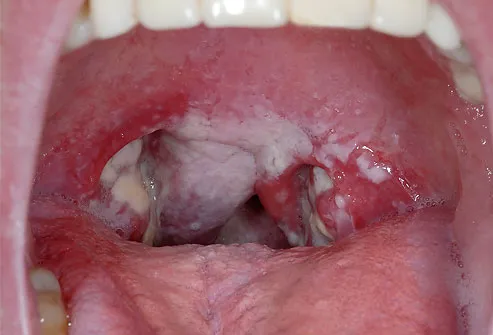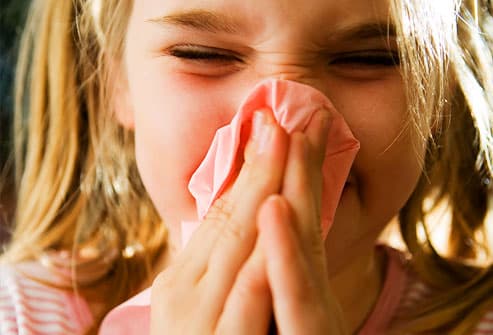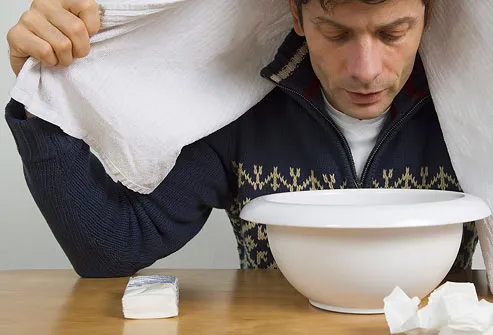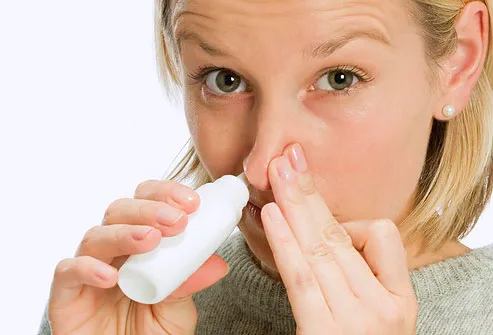How to Tell if a Sore Throat May Be Strep

We all know that raw, scratchy feeling in the back of the throat. The cause may be as simple as dry winter air, seasonal allergies, or a cold coming on. But sometimes the culprit is strep, a bacterial infection that can be dangerous if untreated. Only your doctor can make a firm diagnosis, but there are warning signs that you might have strep and not an average sore throat.

Mom had the right idea when she told you to say "Ahhh." A peek down the hatch can give clues to what’s causing the pain. Are your tonsils red and swollen? Are there white patches on them or in the back of your throat? Is there pus? If so, it’s not strep for sure -- other conditions also cause these signs -- but it’s clear that something’s wrong, and you should call the doc.

Coughing and postnasal drip can make your throat feel bad, but you're less likely to get them with strep. A virus causes the congestion, runny nose, sore throat, and other symptoms that come with a cold.

Colds sometimes cause a fever, but it's generally low grade. A sore throat with a temperature over 101 F raises the likelihood of strep. But you can have strep even with little or no fever.

Your lymph nodes are there to trap and destroy germs. When part of your body is infected, the nearest lymph nodes spring into action and swell as they carry out their job. They’re more likely to be swollen and tender when you have strep.

A sore throat caused by a cold can be plenty painful, but it usually goes away after a couple of days. Strep throat tends to hurt worse and last longer. The pain may be so bad that it's hard to swallow. In some cases, strep may cause nausea, a lack of appetite, or pain in your head and belly.

One less common sign of strep is a rough, sandpaper-like rash. It starts on your neck and chest, then spreads to the rest of your body. When this happens, the infection is known as scarlet fever. It looks scary, but it will start to fade after a few days. Antibiotics can help.

An infection called Group A Streptococcus causes strep. A virus is usually to blame for a simple sore throat. Antibiotics can ease strep symptoms, get rid of it faster, and lower the risk of complications. Without treatment, the infection can affect your heart or other organs. It's rare, but it can lead to serious illness.

You can't get rid of a cold-caused sore throat with antibiotics. These drugs only work against bacteria. and colds result from a virus. Besides, taking them when you don’t need them can make them stop working for your body. Also, bacteria that are exposed to antibiotics over and over can turn into "superbugs" that don’t respond to standard medications at all.

This can help your doctor decide what’s causing your sore throat. The results are ready in 5 to 10 minutes. But the test doesn't pick up all cases of strep. If the result says you don't have it, the doc may decide to double-check with another quick test. He'll take a swab of your throat called a culture and send it to the lab. This takes a couple days to complete.

If you do have this throat infection, your doctor may give you a shot or prescribe 5 to 10 days of antibiotic pills. You'll probably feel better in a day or two, but it's vital to take the entire course of medication anyway -- otherwise some of the bacteria may survive. Remember, strep can still be contagious until you’ve been taking the meds for 24 to 48 hours. Wash your hands often, don't share utensils, and throw away your toothbrush after you’ve had strep.

No matter what’s causing your pain, you can take steps at home to relieve the ache. One trick is a saltwater gargle. Mix a teaspoon of salt into a glass of water to make this easy remedy. It can help keep your throat moist and soothe that raw, scratchy feeling. Spit out the saltwater when you’re finished.

Breathing in steam from one of these gadgets can keep your throat moist and cut down on pain. You can get the same result by leaning over a sink with hot running water. Drape a towel over your head to trap the steam, and breathe deeply. Try this for 5 to 10 minutes several times a day.

Place a warm heating pad against the outside of your throat. Or make your own compress by wetting a towel with hot water. This may be especially soothing if the lymph nodes in your neck are tender.

If you need an excuse to eat ice cream, a sore throat is a good one. The cold has a numbing effect, and the creamy texture makes it easy to swallow. This comfort food is also great for cheering up young (and not-so-young) patients. Other soothing foods include milk shakes, gelatin, and hot soup. With severe sore throats, it’s best to avoid crunchy treats or spicy dishes.

If you have a fever or if you aren’t drinking a lot because it hurts to swallow, your body will lose moisture. You need to get more fluids. Water and ginger ale are good choices. Avoid citrus drinks, which can irritate an inflamed throat.

Don’t tough it out. Over-the-counter pain relievers like acetaminophen, ibuprofen, or naproxen can temporarily dull the pain of a sore throat. Don’t give aspirin to children and teenagers because of the risk of a rare but potentially fatal condition called Reye's syndrome.

These over-the-counter products can help, too. Look for a numbing spray or lozenge. You can even carry a travel-size throat spray for relief on-the-go. Another easy and soothing option? Suck on ice chips.

These meds can dry up a stuffy nose that’s draining into your throat and making it feel raw. Read the label before you buy one, though. People with certain medical conditions and those who take specific medications may need to avoid these products.

If a sore throat lasts over a week or gets worse, check with your doctor again -- even if your first strep test showed you were in the clear. It's possible for a throat swab to miss bacteria, so you may need another one. A long-term sore throat could also be a sign of acid reflux, mononucleosis, or another condition. In rare cases, a sexually transmitted disease may be to blame.